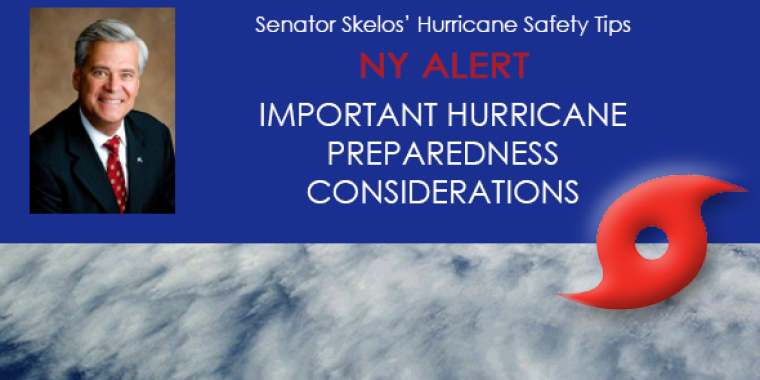
Senate Passes Initiative and Referendum
Dean G. Skelos
June 7, 2011
The New York State Senate today passed a constitutional amendment that would give New Yorkers a more direct role in the legislative process by empowering them to enact and amend laws through initiative and referendum. The bill (S.709), sponsored by Senator Joseph Robach (R-C-I, Rochester), increases the ability of New Yorkers to place an issue on a ballot for a public vote.
“This proposal to establish a process of initiative and referendum in New York State is simply good government,” Senator Robach said. “It is the type of reform that my Senate colleagues and I have consistently fought for and will continue to support so that voters statewide can be given a more direct and effective voice with which to further New York’s democratic process.”
“In order to truly change and improve the way government does business, we must enable the public to have a more active role in the process,” Senate Majority Leader Dean G. Skelos said. “Initiative and referendum are powerful reform measures that give people the ability to directly decide on ideas that have strong public support, yet have not been acted on by their governments. We should not be discouraging better ways in which to engage the public, but rather making it easier to connect with voters interested in building a better New York.”
An initiative is a proposed statutory or constitutional change that is placed on the ballot for a public vote; referendum refers to the power of the people to place laws on the ballot that already have been enacted by the Legislature and either accept or reject them in whole or in part.
Approximately one-half of states across the nation have some form of initiative and referendum.
The proposal would amend the state Constitution to allow for direct initiative and referendum, whereby measures are placed on the ballot at the November general election for a popular vote after a certain number of signatures are collected. Under the proposal, signatures from five percent of the total voters statewide in the last gubernatorial election would be required. To ensure that a measure has a broad base of statewide support, these signatures would be required to include at least 5,000 signatures of residents from at least three-fifths of the state's congressional districts.
Once on the ballot, an initiative or referendum would become law if it receives a majority of the votes cast. A measure enacted through initiative and referendum could not be repealed or amended by the Legislature for at least two years, and any modifications after that period could only be made with voter approval. Measures could be amended or repealed by the voters through the initiative and referendum process at any time.
Under the proposal, the state Constitution could also be amended through initiative and referendum, but measures to amend the state Constitution could only be voted on during a general election in which state legislators are on the ballot (every two years) and the measure would also have to be approved by the voters at two such elections.
The bill also allows for initiative and referendum at the county, city, town or village level. To propose any measure at the local level, signatures from at least five percent of the residents in the municipality who voted in the last gubernatorial election would be required. A measure would become law if it receives the approval of the majority of voters within the municipality.
Any amendment to the state Constitution, such as this proposal, must be approved by two separately elected legislatures and thereafter by a majority of the voters.
The bill was sent to the Assembly.
Share this Article or Press Release
Newsroom
Go to NewsroomTHANKSGIVING ESSAYS AND CONTRIBUTIONS SD 9
November 24, 2015
Halloween Safety Tips
October 29, 2015
Senator Skelos' Hurricane Safety Tips
October 1, 2015

National Women's Equality Day
August 26, 2015
